I always considered the local bike shop and the bike mechanics laboring away inside like little wizards, a place of tranquility and peaceful serenity. I loved going into new shops and talking shop with the guys covered in oil behind the counter, or shooting the breeze with the owner.
It was good fun and an enclave against the harsh English, Scottish, US, or Dutch weather. Depending on where I was living at the time. As a full-time writer, my only requirements for work are a chair, a laptop, decent internet, and good-quality coffee. It’s made it easier over the years to move around and live in different places. I even lived in New York for a short period once. It was ok, but I missed home, so I came back.
It was also a great way to find out what was going on in the local biking scene. Those local independently owned bike shops have their finger on the pulse of what’s going on. It’s also made it easier to get some really good advice over the years about purchasing upgrades and keeping my bike going.
The first time I ever went into a proper bike shop as a grown-up was when I was living in Dublin, Ireland. I had a nice gray Hybrid City-type bike, and it was saving me lots of time going to and from work, and also a small fortune on transport costs. (This was when I still had to work for the man.)
Anyway one night, I was travelling home in a blizzard when I got a flat. The snow was wet and it was melting the moment it hit the street, so not only was it snowing, but it was wet, cold, and I was soaked to the bone and all I had on was my suit. Normally this wasn’t an issue on my forty-minute ride home, but with a flat, and having to walk, it was pretty miserable.
So I took a chance and called in at the local bike shop to see if they could help me. Well, guess what they could. While someone fitted a new tube, the manager made me coffee and insisted I stand in front of the fire. Thus began a relationship that lasted for many years until I moved away somewhere else…
And here’s where we get the point of this article.
I now live in a place that is predominantly considered to be road bike territory. This should be an issue for a mountain biker, but not for me. You see, I have no issue whatsoever carving out or making my trails down mountains. I think it’s a lot of fun searching for ways to find your trails. There’s a small posse of us committed mountain bikers and we have a lot of fun scouring the local country in our search for fun and adrenaline.
The problem with that is that it makes using the local bike shops a bit of a nightmare to buy a new mountain bike. But recently I had to. I finally had to put my trusty Kona Shred on the next boat to Valhalla due to a cracked frame. Like a boy in a man’s world, I said goodbye to my last set of 26” wheels and started looking for a decent sub $1000 all-rounder. Of course, I looked on the internet, did my research, and then went to try some bikes out in the local shops. That was easier said than done. If I had wanted a road bike, I would be in heaven. Every local bike shop had road bikes crammed from corner to corner, but their selection of mountain bikes was sparse, to say the least. And of course, none of them stocked Konas, which is my brand of choice. (I just like them, I do. And that’s strange for someone like me because I’m not a brand junkie, I’m not, but I love my Konas.)
I’m also not the type of person who’ll buy something like a bike off the internet. I prefer to buy locally where and when I can.
But In This Case, I couldn’t.
I was left with one option. I had to buy my new bike from the ‘local’ branch of a big Department store. The thing about this was they sell some pretty decent bikes. I opted for a bike made by a company called Voodoo, and a bike named Bizango. Now, for the price, it’s a pretty awesome bike. So much so, that in the UK it won ‘mountain bike of the year,’ two years in a row, a few years back.
The bonus for me was that the bike had been designed by a guy called Joe Murray, who had also designed several bikes for Kona over the years before he ventured out on his own and started Voodoo. To finish the longest-ever introduction to anything I’ve ever written. I bought the bike. And it was and is, a really good bike. It’s a lot of bikes for not very much money, relatively speaking.
But before we go any further, I feel I have to make this point first.
Local Bike Shops are the lifeblood of local biking communities. They need and deserve your support. The majority of them will bend over backward to try and meet the demands and needs of their local customers. Most of them know what they’re at as well. There are very few of them out there that are in it for the money. That’s part of the reason why so many are going out of business, or closing up shop less than 18 months after they started.
These days with the way the internet has gone, more and more people are choosing to buy their gear online, and their bikes online as well. It’s tough at the coal face for a lot of our Local Bike Shops. Where they survive and thrive is by offering a valued service that is second to none. That’s why given the choice I will always go local first to buy a new bike. This time round I just couldn’t because the Local Bike Shops didn’t have what I needed.
But most people, I believe, want to support not only their local businesses but also their local bike shops. Certainly, this has always been my experience. But there are some worrying statistics out there. Even though more people are cycling than ever before, there are fewer bike shops now than at any point since the 1970s. So why the disconnect? It’s a good question.
Part of it is due to the rise of municipal or leisure biking. People out there want bikes they can cruise to work or ride around at…well…their leisure. Not everyone needs or wants a 257-speed road bike or a full-suspension carbon mountain bike. Some of them just want something with pedals and 2 wheels.
This is where I believe the problems have started with Local Bike Shops. Did you know that in the USA alone, over the last 20 years, there are approximately 33% fewer independent bike shops than there used to be? Why? Are the Local Bike Shops going out of business because they can’t compete with cheap department store bikes? Maybe, but I think that only covers some of the issues. You see, I think there’s a bit of a snob or elitist attitude grown up around some bike shops. Some shops have signs that say they won’t service department store bikes or even no-brand bikes. To me, this is like asking to have your shop close shop permanently.
Sure people can buy their bikes online at the chain department store, but they’ll have a hell of a time buying spares or trying to get it service there. Isn’t this where the Local Bike Shop should excel with their excellent knowledge, experience, and ability to keep your bike on the road? You’d think so wouldn’t you? But then from my own experience with my Bizango, I know that isn’t the case.
Bear in mind that before I go any further, I have over 20-something years of experience of….no Holy Sh*t, it’s 30 years now. I have over 30 years experience of in riding BMX, Road bikes, and primarily Mountain bikes. I am no stranger to wrapping my bikes around trees or wiping out like an adrenaline junkie with a bad habit of always looking for that new high. But I like to keep my business local, where I can, and support the local guys where I can…
Enter the Local Bike Shop And The Local Bike Mechanics
Now, I could have gone back to the large chain store that also sold windscreen wipers, radios, and tents for garden parties to get the bike serviced the first time it was due. But I chose not to. I also didn’t choose to do it myself. I like having a pro mech look my ride over every once in a while. It’s good for my bike, and also for the local economy.
So I duly took it to one of the local bike shops….walked out with it ten minutes later, put it back on the rack, and drove to the next shop. At that shop, it took me fifteen minutes before I decided to drive to the next shop. It wasn’t until I got to the fifth shop, that I ended up leaving my bike in to get the once over…
I Didn’t Get It
It was the attitude that killed me. Where was the sense of community, the shared passion…In less than 2 hours, I’d had a selection of looks and narky comments that quite frankly incensed me. The biggest question for me though, was when had I become the enemy?
With the way the economy is and the speed with which small independent bike shops open and shut, you’d think they’d want to do more to keep their business. Of course, it wasn’t just this one experience that tickled my anger buds. This was just the last straw. Because for me a good local bike shop is worth its weight in gold. So here are 10 sins committed by local bike shops, and local bike mechanics that are driving the lifeblood of money away from their doors.
10 Sins Of Local Bike Shops And Bike Mechanics
1 – When a customer walks through the door, at least acknowledge them.
Would that be so hard? I know, we’re cyclists, we’re all kind of about kicking back and embracing that laid-back ‘hey we’re all in this together’ vibe. But would kill someone working in the shop to at least say hello? Instead of just carting on the conversation on the phone or chatting with the buddy beside you the least you could do is try and be friendly, and not treat the guy walking through the door like he’s an inconvenience.
Seriously that’s the kind of shit I’d expect from a national Chain department store, not from the locals. I couldn’t even get the store clerk to come over and at least say hi when I walked in with my Bizango. He seemed far more interested in telling his buddy about a bike race he just won, and how many of the other racers were riding cheap bikes. The thing was I knew the race he was talking about. Except it wasn’t a race. It had been a charity cycle around a lake. People had their kids with them…
2 – I am not your enemy because I bought a bike from the Chain store.
I am not your enemy because my bike isn’t the brand you carry. I’m in your shop ain’t I? I’m here to give you money, not the other way around. I didn’t buy my bike and bring it to your shop to spite you. Neither did anyone else. And you know what, if someone does walk into your shop with a chain store department bike, maybe they just didn’t know any better.
It’s not like you spend a fortune advertising your shop. People buy bikes in department stores because they don’t know any better, or because they don’t have the bike they want. Besides, people covet what they see every day. They bought their bike from the chain store because that’s where they think you get bikes from.
3 – You tell people the bikes they have aren’t any good when they walk into the shop.
It’s entirely possible someone wanting to get their bike serviced has no intention of competing in races and has no interest in beating someone else’s time on Strava. Maybe they wanted a cheap bike so they could take their kids to the park on Sundays. Maybe they couldn’t afford your cheapest bike. In either case, they’ve arrived in your shop for help, and try and put business your way. Raising eyebrows, openly mocking their bikes, and looking at them like they’re idiots means they’ll never come back.
4 – You assume you know more than the guy you’re serving.
Well, it’s a pretty good bet you do, let’s face it but not always. Like me for instance. One of the mechanics in the bike shop looked at my bike and within 10 seconds was telling me I would probably need new front forks because quote, ‘those chain store bikes have cheap materials in them. Those front forks you have aren’t spring-driven garbage that ain’t worth it.
You’ll kill yourself using them. I got a cheap decent air-filled pair in the back you can have. You probably won’t be able to tell the difference anyway. But then I guess that’s why you bought it from me. Ahhhm, yeah, no. If he’d bothered to look, he would have seen they were some pretty nifty Suntour Raidon forks. No, not the best in the world, but not the worst, by a long shot. He did not get my business.
5 – You tell them their cheap department-bought bike was made in China from inferior materials.
What isn’t made in China? Seriously. Don’t take your customers on guilt trips because they bought a cheap mass-market steel piece of junk from elsewhere. Everyone makes mistakes. My first bike cost me $250, and yes, it didn’t last 6 months, but it was all I could afford. Maybe it’s all they could afford, you know what I’m saying?
6 – Don’t embarrass people by saying you won’t service cheap bikes.
Yes, we know, you’re a pro shop. But most of your customers don’t. A lot of people with bikes couldn’t tell you the difference between a brake caliper and a 27.5. Educate them, and help them but don’t mock them.
7 – You try and sell them junk. Oh yeah.
One of my local bike shops closed recently. It was sad to see, but I wasn’t surprised. I went in looking for a new mountain bike. The guy told me about a great bike he had going for $600. It wasn’t. It was junk. By assuming he could sell pieces of crap at inflated prices basing his business strategy on buyers’ ignorance, he soon found no one was going to his shop. It’s amazing how quickly word can get around, isn’t it? This brings me nicely to my next point.
8 – Don’t automatically assume your customers don’t know what they want or need.
Because it’s really annoying. My wife went to a local shop in the UK once looking for a small frame Men’s bike as from years of experience she preferred men’s bikes to female ones, and the sales rep constantly kept telling her she should buy a women’s bike. Needless to say, they didn’t get the sale.
9 – Thinking that people who buy their bikes from a department store deliberately ignore your shop and when they finally come to you they should look at the ground in shame.
Maybe they didn’t know you were around. Maybe they didn’t know you were the friendly local bike shop. Or maybe it’s because the last time they came in, the mechanic who talked to them treated them with utter contempt for having a steel-framed bike. How about instead you put a massive sign in your window stating you’ll happily service anything going?
Would it kill to greet your customers with a warm smile? It’s about investing in your business, try it out. Just see what it’s like to not intimidate someone who’s probably already out of their comfort zone just by being in a proper bike shop.
10 – Maybe stock some low-end bikes.
How much business do you turn away because you don’t sell any bikes for less than $800? Did it ever occur to you that maybe people buy bikes from the big department store chains because they’re cheap? You don’t have to compete with the big low-quality stores directly. But how about getting some cheaper ones in and modifying them so they’re better bikes, and pitching that fact to potential customers? ‘So yeah, this bike is $150 more than the one in….but we’ve put some customer tires and played with the gears for you, so it’s a much better value bike.’ Try it. You’d be amazed at what a loyal customer base can do for your business.
Also Read:
- Best Mountain Bikes Under $500
- Bike Trek Serial Number Lookup: Importance, Registration And More
- 15 Best Bikes For Heavy Riders (Updated 2023)
- Bike Trek Serial Number Lookup: Importance, Registration And More
Should you have any questions or require further clarification on the topic, please feel free to connect with our expert author Euan Viveash by leaving a comment below. We value your engagement and are here to assist you.

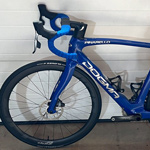

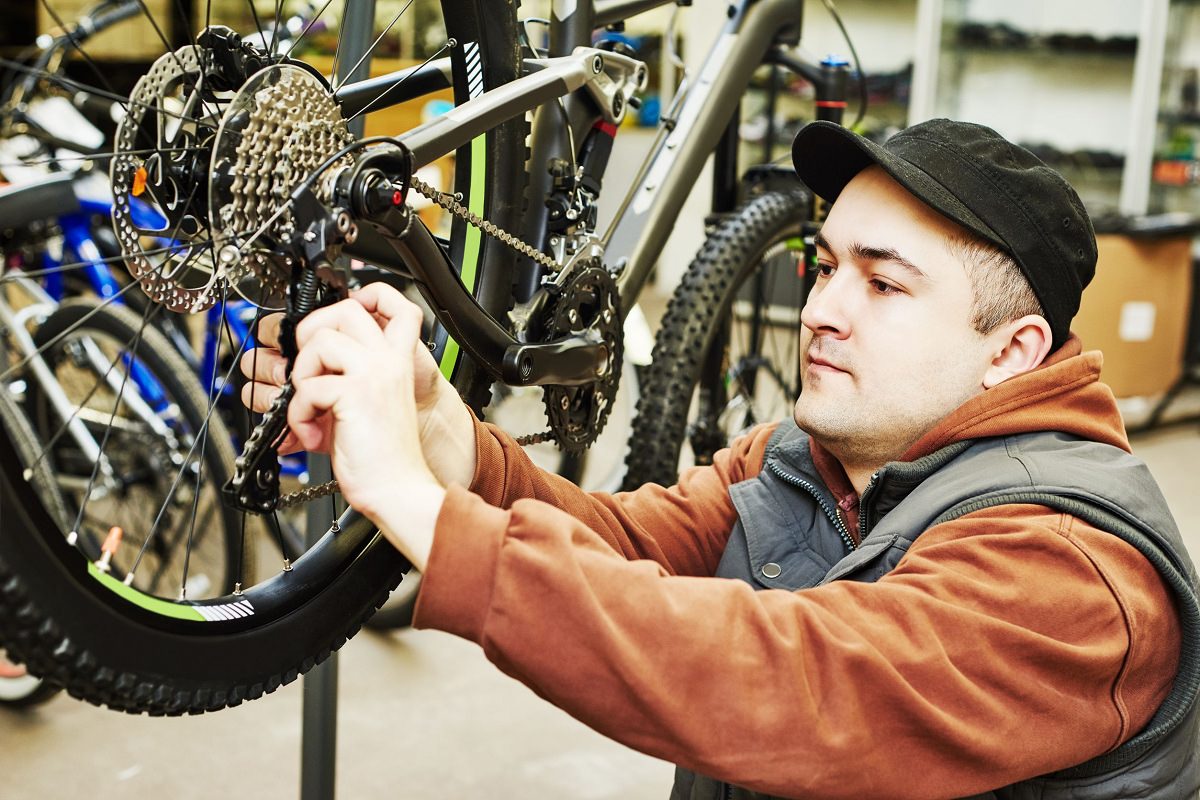
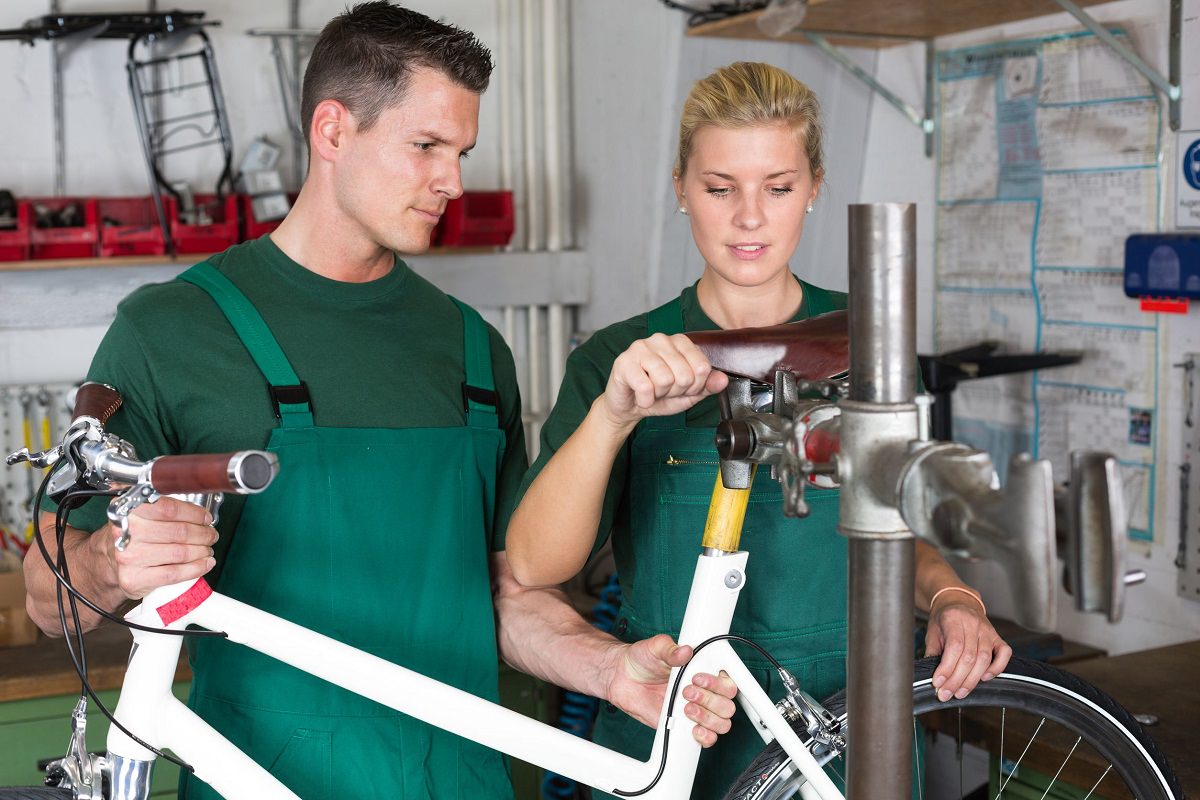
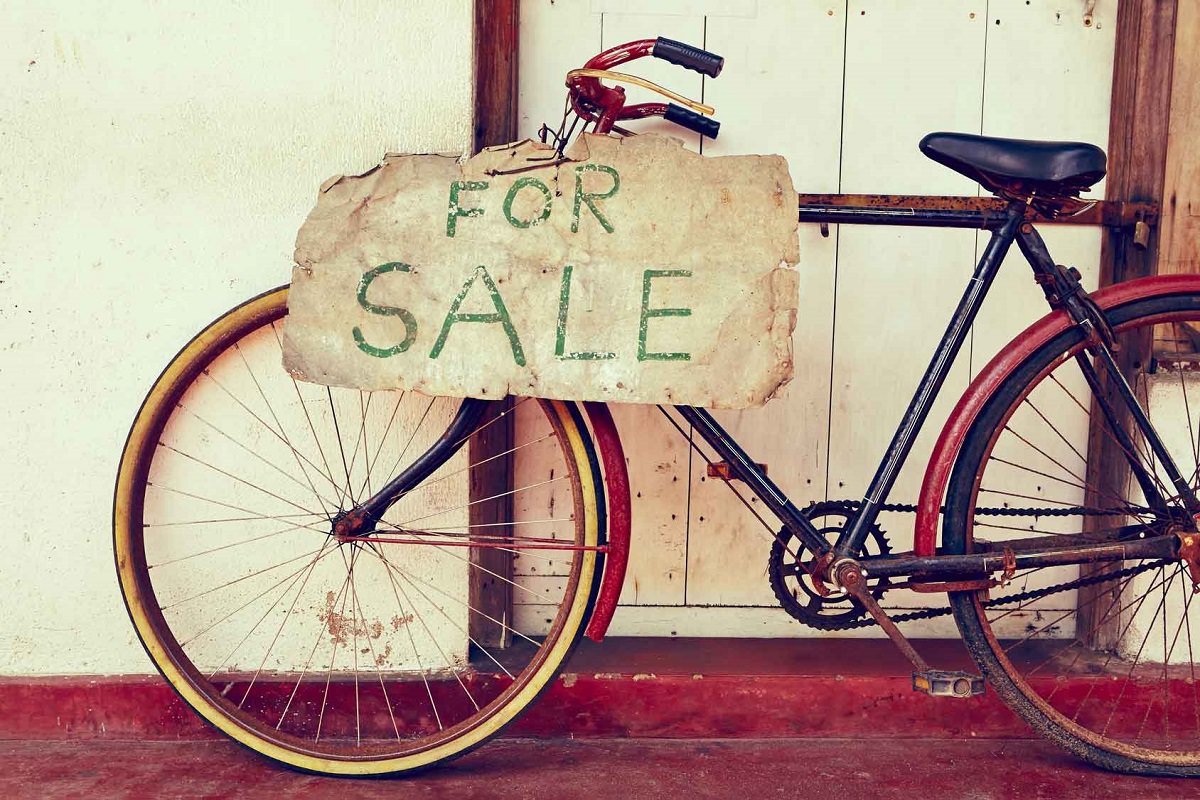
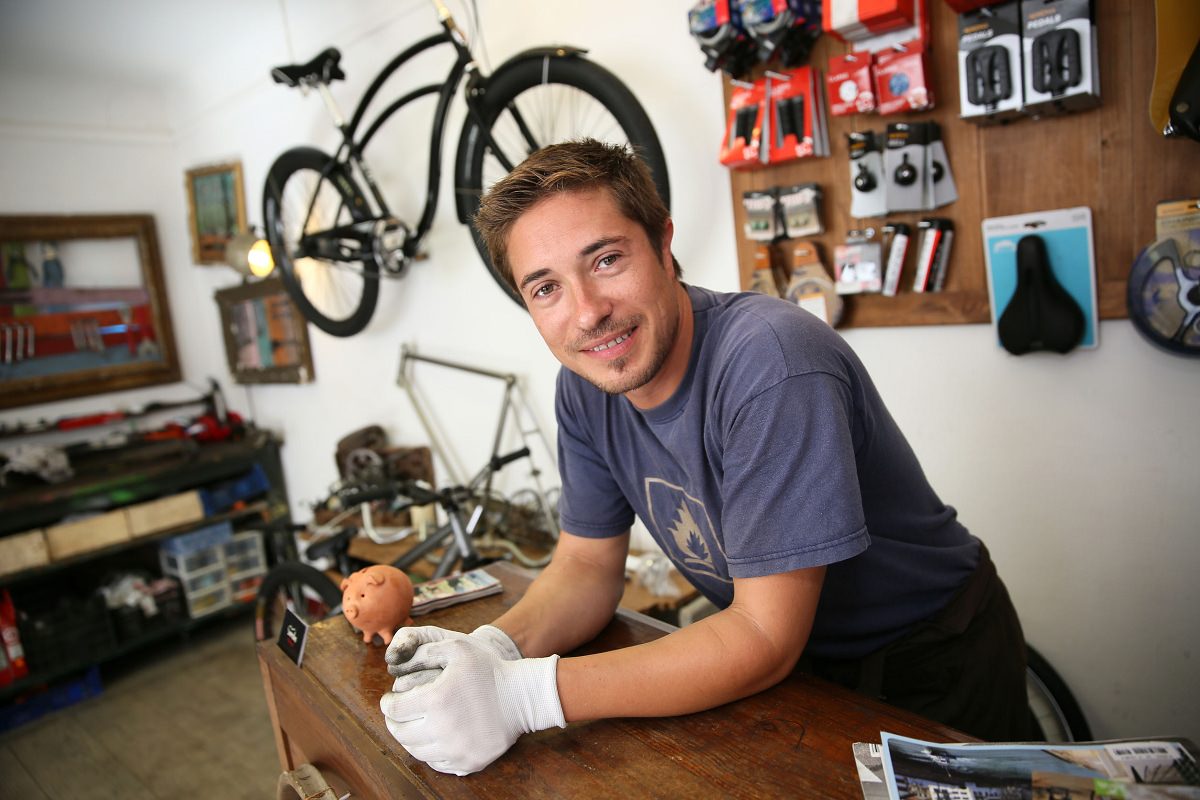



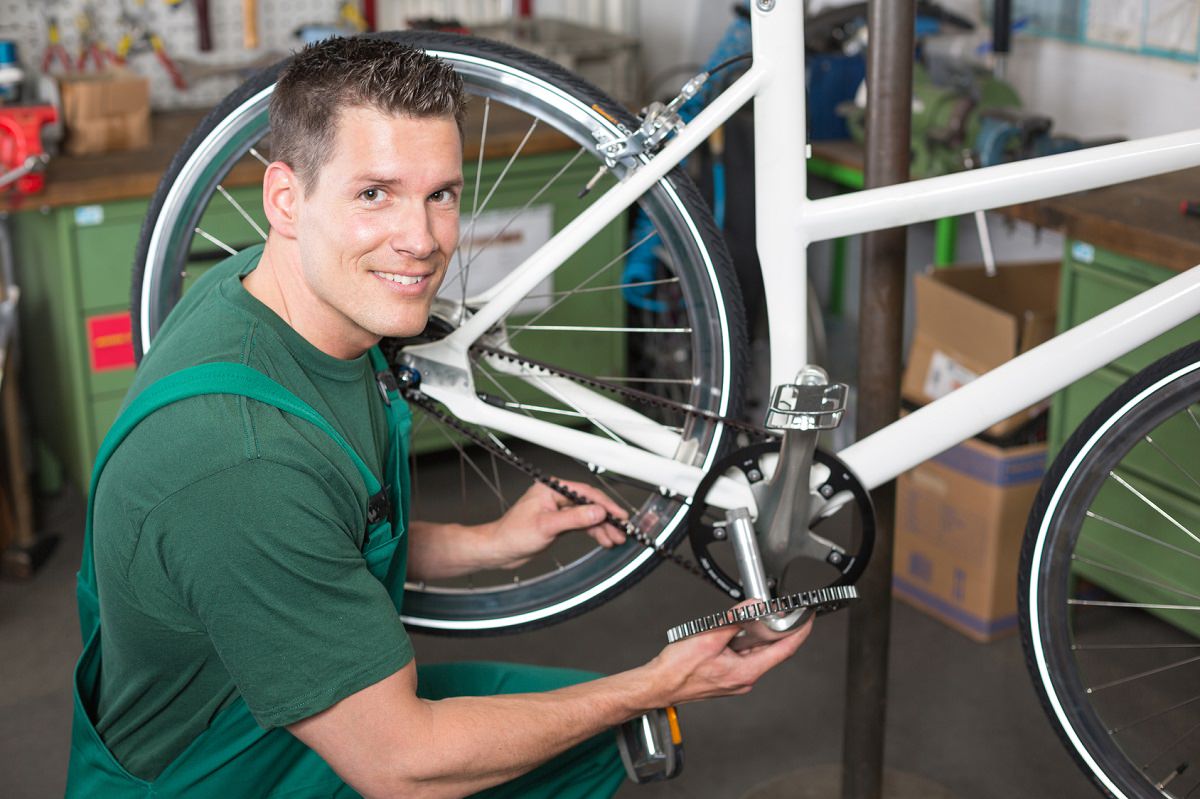
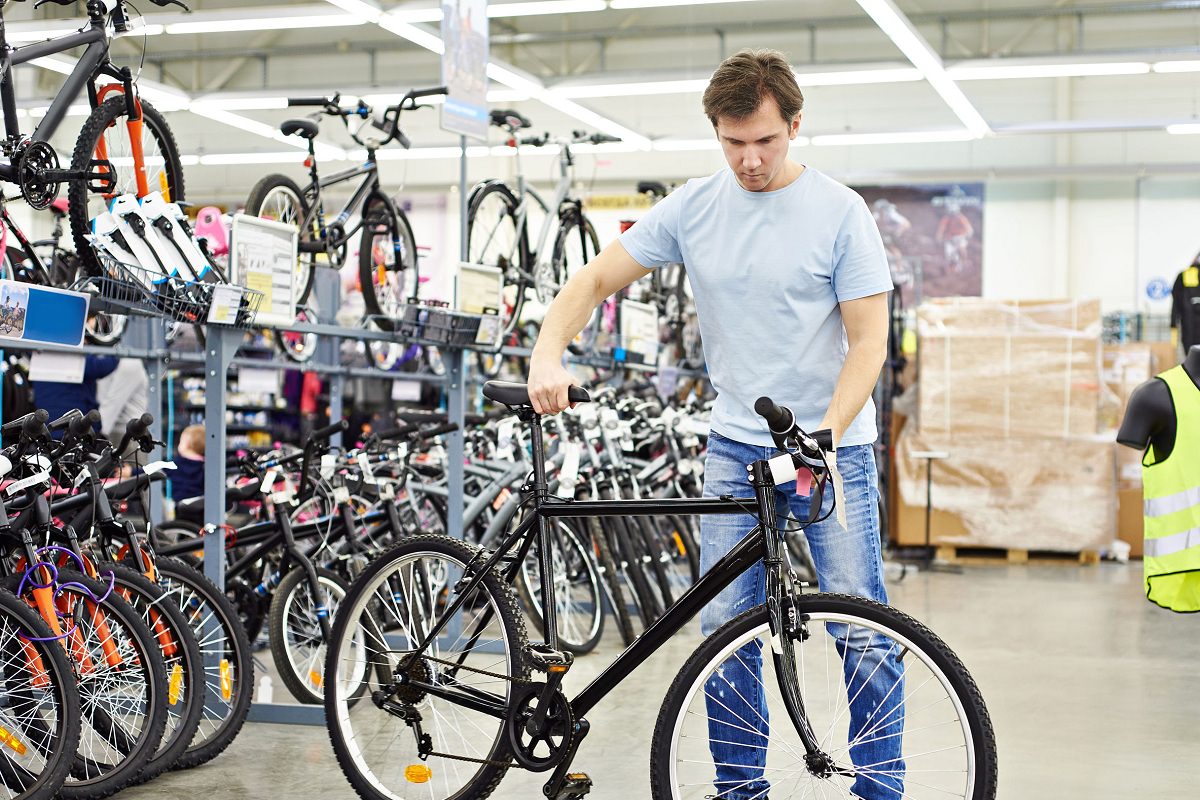

23 thoughts on “The 10 Most Epic Sins Of Your Nearest Bike Shop And Local Bike Mechanic”
great stuff
Great piece and great writing but holy shit, get a new spell checker or fire you’re editor!
I’d never tell somebody up front that their bike was horrible, but I would give my $0.02 if somebody came in saying they were “looking around” and had already seen a few they liked. I don’t care whose bike they buy, I just don’t want to see anybody getting ripped off or treated poorly, and that usually means suggesting that they stay away from most department store bikes, or in my case, cheap no-name electric bikes.
Working in other small bike shops, department store bikes were often purchased elsewhere because they were less than half the price of even the cheapest bikes we had available to us. Customers would walk in left, right, and centre telling us that “I can get a bike cheaper at X” would always come back to us to have it assembled for $45 NZD (flat rate, regardless of the brand or type), and then we’d see them back in no more than a week asking for a new wheel, tyre, or some other part that’s failed on them ($80 for a wheel, $30 for a tyre). It all added up very quickly, and we’d have to put on “We did tell you before you bought it” face on. But we still accept to do the work for them, we just have to make it clear that they’re not allowed to be grumpy at anyone in the shop but themselves.
A good strong word of advice in advance does keep us out of the clear when things do go a bit south though, but we never say it in a condescending or snobbish way. Customer service is more important than anything else, and leaving a good happy impression does great for locking in that customer-shop relationship.
Agreed. You are a professional writer in the age of the blog. While the content of your article was good, I had a very hard time reading it because of the voluminous amount of spelling and grammatical errors. It looks like you pounded the article out once with no proof readings. Otherwise, you had many fine points to make.
I think you have some very good points here… it is unbelievable how these bike enthusiast and bike shops behave. Really some people need to grow up… they are like children with their favorite toy. If bike shops want to make money and stay in business they should try helping people understand more about bikes instead of being arrogant as if everyone should be born knowing about bikes… it’s like any other hobby … you have to get into it over years and by being taught. So if you own a bike shop please don’t make the mistake of treating potential customers like you are better than them and they are bothering you because they don’t have your knowledge… because if they did they wouldn’t be there… imagine if car mechanics behaved that way… we wouldn’t be able to get our cars fixed!
The problem here is that you did buy a throw away item.
You then asked a proper bike store to service said throw away item.
Go figure.
All bikes in big department stores are simply ride them until something stops and then ditch it, that’s it, it costs more to make it go again than to go buy another.
Under these circumstances, why do you expect a bike shop to drop it’s rates to get your bike going just so you can save some money?
Somehow big dept stores have dodged the ‘bike must function and not try to kill people’ by self insuring and knowing that the bike will be so dead in 12 months that nobody will try and ride it.
Bike shops don’t want to touch your bike because as soon as they do, they are going to be liable when it kills you.
They don’t sell these demons because they know the bikes are dangerous and uneconomical to repair.
The attitude problem is yours, you buy the cheapest crap from those who stock it but expect a mechanic to fix it for you. He can’t. If he does it is a love job that makes no money, If the job makes no money they eventually go out of business.
When the cheap desk that you bought at the dept store falls apart, do you then go to a cabinet maker and ask if he can fix it so it won’t fall apart?
No.
Then why do you expect a bike shop to do the same?
Do you go to an electronics repairer to fix the cheap electronics you buy?
No you chuck it in the bin and get another and watch as the quality manufactures get screwed by cheap price chasing idiots that buy crap and expect it to be as good as the real thing.
Keep buying your crap and work out how much it costs you in the long run to own it.
When you have figured it out that a bike shop bike would have been a better long tern purchase, go knock on the door and peer inside at the empty store.
Keep buying crap, keep breaking crap, that is your only choice now soon, the good ones will be all gone and you can lament the stupidity of the shops that let this happen, not realising that it was what YOU were asking for all along.
I don’t think any lay, uninformed consumer (i.e. the majority of the market) would agree with you.
The author is highlighting to bike shops that they’re missing a valuable teachable moment: a chance to convert a previously unaware consumer about how their choices affect their future choices – in terms of safety and economics – and convert them to purchasing bikes and components from experienced local mechanics. Snobbily telling a consumer that their uninformed choices led to an unwanted conclusion is useless.
The idea the author wants you to understand: Ignorance is not a sin; it’s a universally pre-existing condition that remains so until remedied.
Darryl, did you even read the article before commenting? He bought a Voodoo Bizango.
Darryl, a Voodoo Bizango (worth around £330) is not a ‘throw away’ bike. Voodoo are actually a decent brand, and as the author of the article pointed out, winner of many awards. The particular bike you’re dismissing as garbage has countless amazingly positive reviews including ‘best hardtail of the year for under £750’ in 2016 in the UK and 10/10 on MBR, an accredited reviewer. Raidon forks, aluminium frame and rims, deore mechs, maxxis tyres. These aren’t the same components you find on your £60 no-name brand with no-name components you can buy at Argos. Department stores CAN sell decent bikes, just like they can sell bad bikes. To dismiss a bike blindly because of its source is… bizarre! I recommend next time you actually look up the bike the author is talking about before assuming it’s some random bike-shaped-object, assembled a store that specialises in clothing, by the cashier. For the money this bike is easily in a league of much more expensive bikes.
“Why do you expect a bike shop to drop it’s rates to get your bike going just so you can save some money?”
Darryl, bike shops will charge the same amount of money to service the gears on a £60 bike as they will on a £1,800 bike. Workshops have a price list so it makes no difference in price to them.
Sorry Darryl but your comment is basically one big long rant about how the author is supposedly a stupid person with a bad attitude when the joke’s on you because he actually bought a decent entry level bike and NOT a supposed ‘bicycle shaped object’ that some department stores sell. I am FULLY aware, as I am a qualified bicycle mechanic, that some places sell extremely cheap bikes that cost less than half my weekly food bill to buy, that are made using sub par components and assembled with minimal expertise.
But when there’s a huge misunderstanding and you’re steaming away like a teapot and what’s REALLY happening is you didn’t even bother to Google the bike the author bought — and instead just assumed it’s bad based on the fact he got it from a department store — actually just proves you’re like all the other ‘mechanics’ the author WROTE THIS VERY ARTICLE ABOUT. People who jump to conclusions!
“lament the stupidity of the shops that let this happen” — well what are we supposed to do? We can’t stop other shops from selling what they want. That doesn’t make us stupid, it makes us powerless!
THANK YOU.
Also, this article seems to be written from the perspective of someone who’s never worked in a bike shop. People think we live this happy go lucky life where our jobs involve a hobby we love, but don’t realize the stress if comes with dealing with ignorant and rude customers. And guess what, that’s most of them. In the US, people’s perception for the value of a bicycle (and especially bicycle service) is next to nothing. You tell them $80 for a tune up and they come back with, wow that’s like a car repair. They don’t respect you 99% of the time, and always expect you to discount everything or they threaten to leave a bad review or never shop there again. Bike shops are dropping because people treat them like crap.
And liability is another thing. They can’t wait to sue your ass if they can get something out of you for it.
Good read. But you must admit that 1k bike is just above the level of being worthless… by worthless I mean, tyres with little grip, although they wear out quicker than soft DH compounds, soft rims that will need frequent truing, fork that will stop working after 2 years, no matter what you do with it, brakes that won’t take riding in actual mountains and will completely cease to work after a year, drivetrain that will wear out in 1000Miles, rust and weigh a ton.
My buddy bought the cheapest Charge cooker 29. It was 30% off. He still paid at least 20% too much. I am an open minded person. I am trying to be aware of what you wrote above. But that decision of my buddy crossed my heart. Some people are too stupid to deserve good service. As to the shops? Some are to stupid to deserve good clients.
NATURAL SELECTION. Life has never favored weakness. Only the strong and smart survives. Find a shop you like and stick to it!
That’s a load of absolute nonsense, coming from a bicycle mechanic. You can find many many great bikes at as low as $500. Usually going cheaper doesn’t help much — really budget bikes are often extremely heavy with next to useless suspension — but I avoid recommending budget suspension anyway. But seriously for $500 you can get a bike that will reliably last you years and years.
You can get decent tyres for very little money. For a mere $17 you can get the awesome Maxxis Holy Roller — one of the best MTB tyres ever made. Half the stuff you’re writing is a load of complete bollocks. Most cheap bikes use steel which is actually STURDIER, not ‘softer’ like you claim. If a wheel needs truing all the time, it’s not correctly built. If a fork stops working after 2 years, it’s not being serviced. Forks need to be routinely serviced and in many cases servicing a cheap pair is not worth it as it costs more to service than just replace or upgrade.
Some of the old bikes customers bring in — cheap ones — are still going strong because they’re damn tough things.
On top of that, an entry level aluminium bike is not expensive these days, and doesn’t rust. A chain that isn’t plated can rust, yes, but if it’s kept lubed it shouldn’t, and even if it does? Chains are cheap as chips to replace.
You’re not an open-minded person. You have disdain for cheap bikes JUST LIKE the bike shops the author talked about in this article, whilst claiming your buddy’s choice of buying a cheap bike crossed your heart. You’re arrogant, you talk about natural selection as if you’re so much better than these ‘inferior beings’ who buy bikes below your ‘price threshold’. Carry on face-palming at them!
You speak about people being stupid and natural selection, yet you do not realise that in many ways the problems you describe are rooted more from people neglecting their bikes in general. And you TRULY believe that a good bike cannot be had for a little less than a grand? Really? Come on, any half-sensible person knows that the price doesn’t automatically dictate the quality of the bike. I’ve seen $600 bikes that are better than some $1800 bikes and vice-versa. Price doesn’t guarantee the bike will be better!
And finally, you’re condescending. We all have not only our budgets, but our priorities. A Sunday cyclist or hard packed trail rider does not need to buy a super-light, high-end MTB. They can get by with what meets their needs.
Yes lots of truths..
Good write up. I have seen shops like these and it is a shame. I have been treated in simular ways whe trying to get spares for peoples bikes that do not cost loads and or are not made of carbon etc and i run my own repair cycle buiz. Butbnot all of us are like this. I will happily work on a exotic £4000 bike or a freebie second hand one all with equall care and pride.
I enjoyed your article. I have crossed the country, and fortunately, for the most part, found some wonderful community oriented bike shops that love to repair bikes…all bikes. For these particular shops it’s a passion and not a grind.
Let me know if you would be interested in “guest writing” on my blog. TourDePACLANTIC.blogspot.com Ride on!
I read this with interest as a woman who fixes bikes. I’m careful not to call myself a mechanic because I’m not but I’m no mug when it comes to bikes. I work from a home workshop so I don’t sell bikes and a number of my customers, especially women, tell me they like coming to me because I fix their bike and not judge them about what they are riding or patronise them about not knowing how to fix a puncture or adjust cables. I’m always very grateful that they come to me and one day if my dream comes true and I get my qualifications and my own shop I’ll welcome all bikes, no matter what.
I really enjoyed the read and am actually in the market for a bike for the first time in many years.
Many of the shops in my area are content to deal in the higher end road or mountain bike segment and overlooking the simple cruiser.
Great article. A good attempt at bridging the gap between the innocently uninformed consumer and the condescending bike shops.
I, too, feel the responsibility to buy local when I can, and, relative to consumer experiences I’ve had in other industries (auto, commercial electronics, etc.), I’ve generally found bike shops to be genuinely interested in my well-being and sources of community. Often, however, the snobby mechanics are simply so knowledgeable about their art that they forget being 10 years younger, forget being 10 years more ignorant/inexperienced, and hold others responsible for not going down their chosen path.
Perhaps it’s a sort of insecurity from working in an industry in an evermore technologically advanced world that undervalues small-scale operations, but as the author highlights, it is self-destructive and needs to change if the communities of old are to survive.
My organisation isn’t your typical bike shop, it’s more of a ‘hub’. A growing trend in the UK, a bike ‘hub’ is like a combination of cafe, meeting point and bike shop. It’s a central point where rides can be arranged to start or finish. We hire bikes, do repairs, we do cycling lessons for kids, we host events, and we support the local community. We also aim to encourage the uptake of cycling by creating a positive image.
We don’t sell new bikes, we recondition ones that people donate/no longer want and sell them on. We are not at all snobbish towards cheap bikes because every rider is still a rider, and the more people cycling the better it is for EVERYONE involved. I’ve seen countless cheap bikes — and many from a major department store that sells most bikes in the country — and while some of the entry ones use iffy components and don’t work quite right, the majority of them are actually pretty decent, reliable bikes. And we fully respect people have budgets.
Unfortunately a lot of other bike shops are very snobbish. It seems to be a trend with the industry in general. I don’t know any other industry in my life that has as much snooty stuck-up superiority in it as the ‘higher cost end’ of the bicycle industry. I am sorry to hear it’s even worse for you in the US.
Funny thing is the bike you bought isn’t a half bad beginner Mountain bike. its got tires made by an actual brand, suspension that will work just fine on smoother less technical terrain, has a front thru axle (cant tell if it has a rear) which you don’t even see on some bikes that cost $1000. all in all its not a bad bike. and honestly as a mechanic of 2 years i don’t mind working on some of the more inexpensive and older bikes, they don’t have weird proprietary parts that take 300 dollars worth of tools to work on, and the customers tend to not be as snotty about their bike as those with more expensive bikes.
I hate that you describe an experience that happens so often to so many people. I’m fortunate to live in an area with several excellent local bike shops. all of whom are friendly, honest, and helpful no matter the price or type of the bike. I have one that I’m particularly faithful to, but I would happily send someone to any of the local ones. And thankfully all of the local shops seem to be doing well (expanding, even)! I appreciate what your wrote here.
I recently had some work done at a local bike store. I brought in my Trek 1000 road bike, circa 1990, and asked to have the brake shoes replaced. They replaced them with modern brake shoes that are way too far from the rims and not properly toed in or otherwise adjusted. I did not realize how bad they were and went out for a ride and had difficult time braking down a steep hill at 30+ mph. I brought the bike back to have them adjust the brakes properly and they told me they were not adjustable and I needed new brakes (mind you these were high-end brakes for the era). They also insisted the brakes were bent – this bike has never been crashed and I didn’t think you could bend cast aluminum, it would crack first.
I left and luckily had had them save my old shoes, they squeak, but at least they work. In conclusion, they just did not want to be bothered with anything except standard modern setups and had no improvisation skills and no inventory for older bikes.
Never been back and still looking for a skilled shop.
This article has a lot of typos. Like the difference between know and now and this person is a pro writer? And maybe use some economy in the expressing of an idea, damn! you could cut this down to a few paragraphs. And btw, some well marketed brands like Kona are overpriced for what they actually have. So just because you paid a lot doesn’t always mean it looks that way to someone who’s just looking at what you got from mechanical perspective. The attitude and assumption that bike shops are gonna bend over backwards for peanuts “good vibes” rubs me the wrong way.
Nice Article. Thanks for sharing this information.